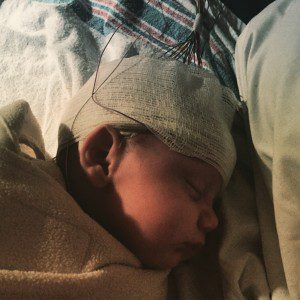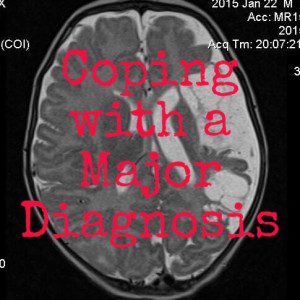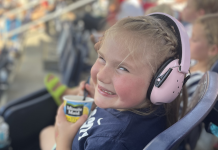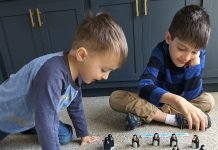Two short months ago, my baby received a Major Diagnosis (capital letters necessary).
We took him to the hospital for croup. We brought him home with a diagnosis of left parietal encephalomalacia due to prenatal stroke, craniosynostosis, hemiplegia, hypertonia, and, eventually, cerebral palsy.
Worst surprise ever? Worst surprise ever.
I don’t claim to be an expert here. We are still very much processing everything that’s going on, and still forming a treatment plan and establishing care and everything else. But here is what’s helped us get through these difficult last few weeks.
1. ASK FOR HELP. Conveniently, I wrote a post about this awhile back. I re-read it during this time, and tried to listen to myself. People will offer to help. Let them. They want to feel like they’re doing something because it’s so easy to feel helpless. It is mutually beneficial.
2. Get a notebook, binder, or file folder. However you like to organize stuff, do that. I have a color-coded notebook I keep with notes and questions for each specialist he sees (neurology, plastic surgery, occupational therapy, physical therapy, rehab medicine) and use washi tape to tape down important business cards (get them from every doctor you see) and other instructions.
3. I’m not going to tell you not to Google, because you will. But set boundaries — I do most of my research through Mayo Clinic, the hospital website, or national organizations. Do not go down a rabbit hole of theories and studies with no basis.
4. Go with your gut. Mom gut is powerful. It has led me to the correct decisions time and time again.
5. Don’t be afraid of a second (or third, fourth, and fifth) opinion. Heck, don’t be afraid of doctors. If the care your child is receiving or the way you are being treated is not acceptable to you, pack up and move on. There are lots of doctors out there. We drive to St. Louis to see a certain group of doctors for one of my son’s issues, and it is worth every minute of the car trip to be listened to.
6. Take care of yourself. Let the house be messier than usual. Accept frozen pizza as an acceptable dinner more often than usual. Go to bed early and  leave a sink full of dishes sometimes. You have to care for yourself to care for your child.
leave a sink full of dishes sometimes. You have to care for yourself to care for your child.
7. But, it’s OK to not be OK. Seek help from professionals as you process this. Cry. Eat nachos in a bubble bath (NOT THAT I’VE DONE THAT, OK). Whatever floats your boat.
8. Join online communities for other special needs parents and vent to people who REALLY get it. Ask those communities to tell you about their older children, and you will hear them talk about how they love music, or run track, or are headed to college. There is something incredibly comforting about those descriptions.
9. Remember that your child is still, first and foremost, the same child you’ve always loved. Child first, diagnosis second. He is still my son, Patrick, who likes blowing spit bubbles, listening to Bob Dylan, and splashing in the bathtub… who happens to have these various scary medical diagnoses.
10. Prepare to be amazed by what your kid can do. You hear time and time again, “children are so resilient!” because IT’S TRUE. My child is missing roughly 30% of his brain… and is 5 months old and already rolling both ways, trying to crawl, and very nearly sitting up unsupported. We don’t know what his future will hold, but I do know I will be blown away at every step.
Welcome to Holland, mama. You are not alone.

















